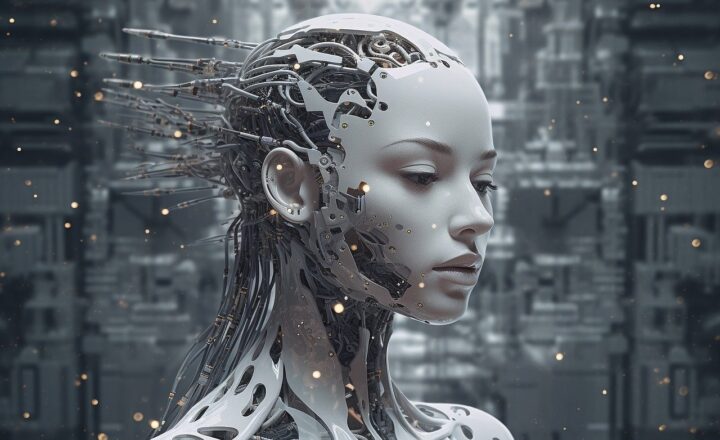AI Unplugged: The Surprising Ways Artificial Intelligence Is Reshaping Our Lives
November 18, 2024

Artificial Intelligence (AI) is no longer a concept restricted to science fiction. It’s now woven into the fabric of our daily lives in ways many people might not even realize. From the virtual assistants that help manage our schedules to the innovative algorithms enhancing our healthcare and entertainment experiences, AI is reshaping our lives in astonishing ways.
In this article, we will dive deep into the multifaceted roles that AI plays in modern society, exploring its unforeseen implications and its potential to drive us toward a more efficient, connected future.
1. AI and Everyday Convenience
From home automation to personal shopping, AI is making our lives simpler and more efficient.
- Smart Home Devices: Devices like the Amazon Echo and Google Home are powered by AI technologies, making it easier to control your home environment. You can adjust lighting, temperature, and security devices through voice commands. Smart appliances are even learning user habits to improve energy efficiency and convenience.
- Personalized Recommendations: Streaming services like Netflix and Spotify use AI algorithms to learn about your preferences, which allows them to recommend content tailored to your taste. This personalization enhances user experience and satisfaction.
- Virtual Assistants: Tools like Siri or Google Assistant utilize AI to help manage daily tasks, set reminders, and answer questions. Their ability to interpret natural language is improving, enabling them to respond more intelligently.
2. AI in Healthcare
AI is making dramatic strides in transforming the healthcare sector, from diagnosis to patient management.
- Predictive Analytics: AI tools analyze patient data to predict health risks and disease outbreaks, allowing for proactive healthcare measures. Hospitals utilize AI systems to track patient vitals continuously, quickly identifying complications.
- Disease Detection: Image recognition algorithms are employed in radiology to diagnose conditions like cancer more accurately and at an earlier stage than human radiologists.
- Personalized Treatment Plans: AI can analyze a patient’s genetics and lifestyle to recommend tailored treatment options, paving the way for personalized medicine.
3. AI in Education
Education is another field being transformed by AI, making personalized learning a reality.
- Adaptive Learning Platforms: Programs like DreamBox Learning deliver personalized lessons in real-time, adjusting the difficulty based on student performance. This model helps students learn at their own pace.
- AI Tutors: Virtual tutors powered by AI are available 24/7, offering help with specific subjects whenever students need it. This accessibility helps bridge learning gaps.
- Administrative Efficiency: AI helps educational institutions streamline administrative tasks, from grading to scheduling, allowing educators to focus more on teaching.
4. AI in Business
Artificial intelligence is revolutionizing the way businesses operate, enhancing efficiency and decision-making capabilities.
- Data Analysis: AI algorithms can process and analyze vast amounts of data far more efficiently than humans, providing insights that inform strategic business decisions.
- Customer Service Automation: Businesses use chatbots and AI-powered customer service tools to handle inquiries, providing instant responses during off-hours and reducing workloads for human employees.
- Supply Chain Optimization: AI systems track inventory and predict demand, enabling businesses to optimize their supply chain and reduce costs.
5. AI in Entertainment
The entertainment industry has embraced AI to create unique experiences for consumers.
- Content Creation: AI is being employed to script and produce music, movies, and even video games. Algorithms can analyze successful plot structures, leading to better story development.
- Enhanced Gaming: AI is revolutionizing gaming by creating smarter non-player characters (NPCs) that adapt to player behavior, enhancing the immersive experience.
- Deepfakes and Virtual Reality: Technologies driven by AI, such as deepfake video generation, present both creative opportunities and ethical challenges, prompting discussions about authenticity in media.
6. Ethical Considerations and the Future of AI
As AI continues to intertwine itself with our lives, ethical considerations become increasingly vital. Issues such as data privacy, algorithmic bias, and job displacement are concerns that need addressing.
- Data Privacy: The collection of data for AI training raises questions about consent and user control over personal information.
- Bias in AI: AI systems often reflect the biases of their creators or the data they are trained on, leading to unfair outcomes.
- Job Displacement: Automation powered by AI prompts the need for reskilling and job creation strategies to mitigate unemployment risks.
Conclusion
Artificial intelligence is not merely a technological trend; it is an integral part of our development as a society. While we reap the benefits of efficiency, personalization, and accessibility that AI brings, we must also remain vigilant about the ethical challenges it poses. Understanding and shaping the role of AI in our lives will ensure that we maximize its potential while minimizing its risks. As we look toward the future, embracing the surprising ways AI is reshaping our lives seems more necessary than ever. The road ahead is one where AI will evolve constantly, shaping a world that blends the digital and human experiences in profound ways.
Whether we are aware of it or not, AI has already begun to ‘unplug’ us from the mundane by elevating our experiences, and the journey has only just begun.







